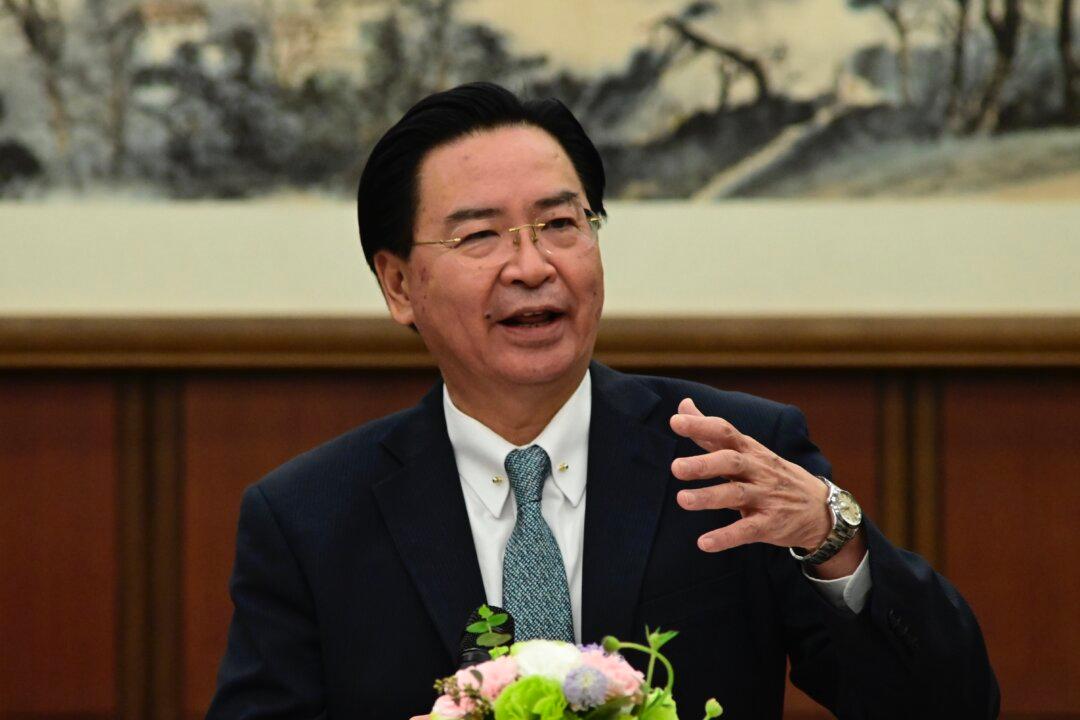TAIPEI, Taiwan—The self-ruled island is a “sea fortress” blocking Beijing’s expansion into the Pacific, Taiwan’s Foreign Minister Joseph Wu said on Sept. 15.
Wu made the remarks during a keynote speech at an online symposium organized by the Washington-based nonprofit Global Taiwan Institute (GTI). The event, which focused on Taiwan-U.S. relations, was attended by U.S. Rep. Ami Bera (D-Calif.) and David Stilwell, former assistant secretary at the State Department’s Bureau of East Asian and Pacific Affairs.





